van Leeuwen C (2019) provides an excellent summary of the current status. Here are some key points of interest:
- In framing their analysis of the future suitability of different cultivars the authors set the ideal timeframe for high quality production to “10 September and 10 October in the Northern Hemisphere and in March or early April in the Southern Hemisphere”.
- Climate models used in the past to assess regional suitable have been at too lower resolution to account for inter-regional differences in topography and climate. Newer models provide more accurate views.
- Average Growing Season Temperature in Bordeaux has increased by approximately 2°C over the past 70 years.
- “In Alsace (France, top photo), over a 70-year timespan, budbreak has advanced by 10 days, flowering by 23 days, véraison by 39 days, and harvest by 25 days”.
- Temperature increase mitigation techniques discussed include selecting later ripening cultivars and clones, later ripening rootstocks, increasing trunk height, reducing leaf area to fruit weight ratio, late pruning and selecting higher altitudes.
- Water management under climate change is also discussed in detail.
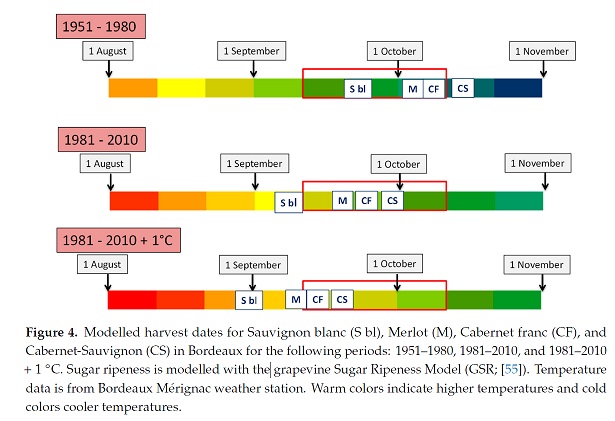
However, the curve balls are inter-seasonal extremes and ultimately our inability to accurately predict what will happen next year in time to implement changes. Sgubin G (2019) has very recently published a paper that challenges our blinkered views of climate change. Some climate models - those incorporating a breakdown in the Northern Atlantic Subpolar Gyre - are now predicting the potential for decade-long colder spells that transiently set global warming back to where we currently are.
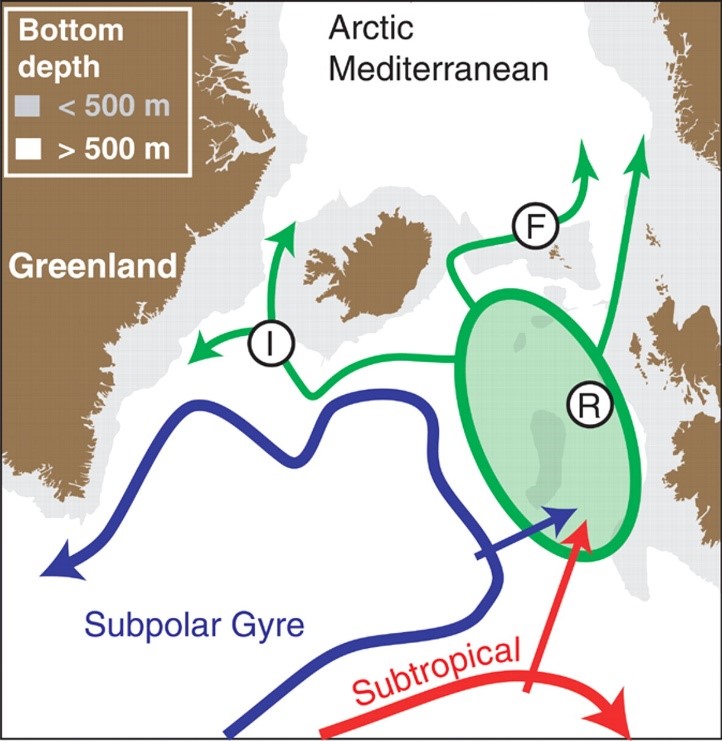
Source: Hatun H 2005
The graphic below (Sgubin G 2019) illustrates the differences in days to ripening between a predicted cold decade (2069-2078) and a typical decade under current global warming (2059-2069).
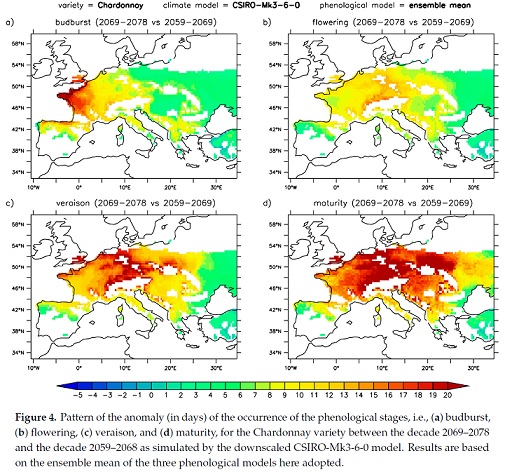
To illustrate the potential impact of the predicted cold decade, the authors modelled the potential to ripen Grenache in Bordeaux based on the September-October timeframe mentioned above (represented by dotted lines in the graphic below). As you can see, the general trend is towards Grenache working in Bordeaux. However, during the predicted cold decade Grenache would need to ripen outside the ideal window.
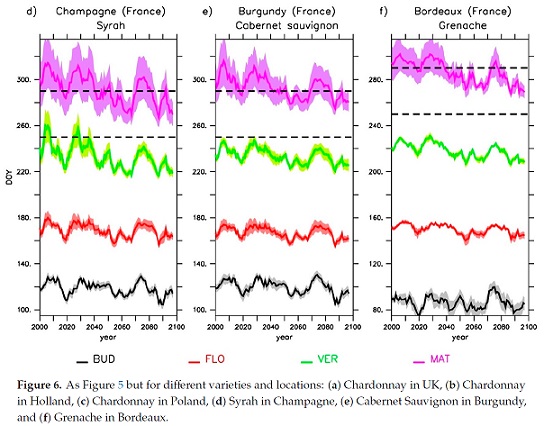
The paper also illustrates that our current high quality cultivars are drifting more and more towards (or over) the bottom line, making it clear that we need to be less traditional with our vineyard and winery management to keep them in the game.
If you are looking to replant, how much risk do you want to take on?
- A slightly later ripening cultivar on one of your warmest blocks - low risk.
- A significantly later ripening on one of your warmest blocks - you might get bitten in the colder years but it won’t break the bank.
- Doing the same over your entire vineyard - high risk.
James Wright is an international viticulture and management consultant and author of www.vitisynth.com and the newsletter VitiSynthesis.


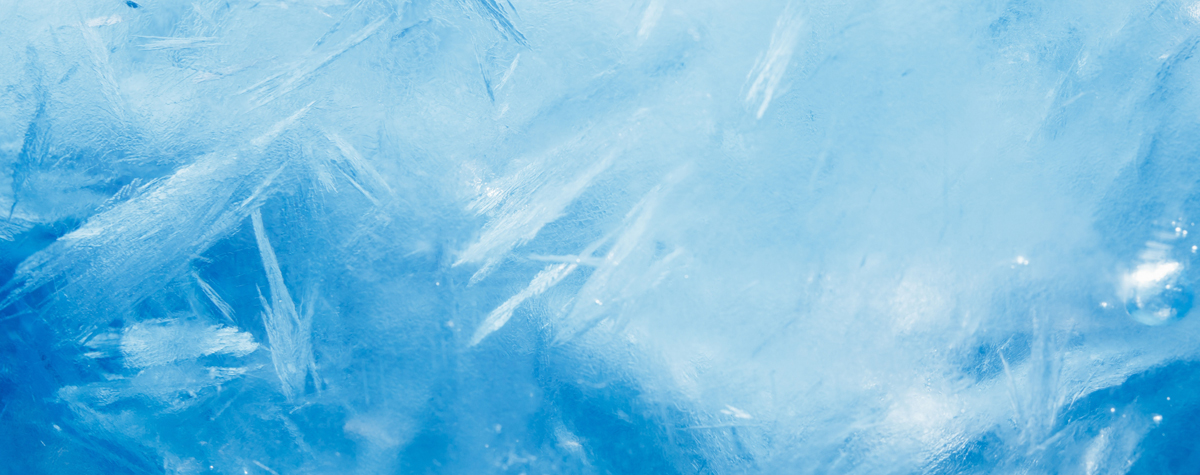
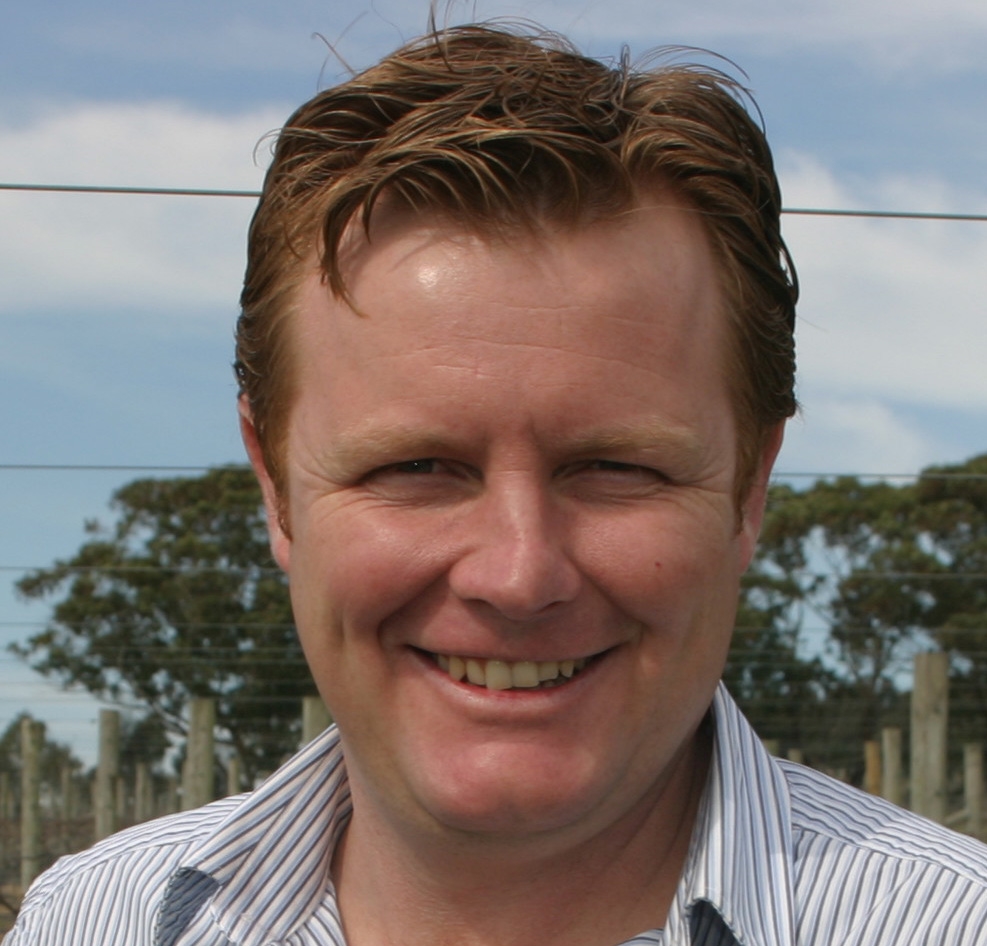







.png)









